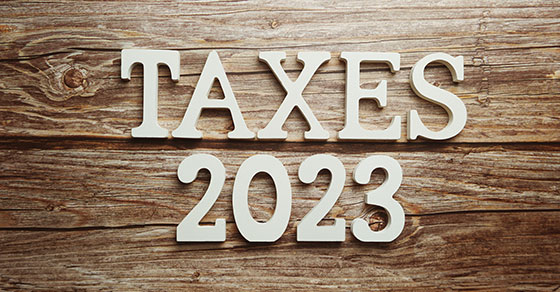
Under tax law, businesses can generally deduct advertising and marketing expenses that help keep existing customers and bring in new ones. This valuable tax deduction can help businesses cut their taxes. But what expenses are eligible? Keep reading to learn more.
Ordinary and Necessary
In order to be deductible, advertising and marketing expenses must be “ordinary and necessary.” As one taxpayer recently learned in U.S. Tax Court, not all expenses are eligible. An ordinary expense is one that’s common and accepted in the industry. And a necessary expense is one that’s helpful and appropriate for the business.
According to the IRS, here are some advertising expenses that are usually deductible:
- Reasonable advertising expenses that are directly related to the business activities.
- An expense for the cost of institutional or goodwill advertising to keep the business name before the public if it relates to a reasonable expectation to gain business in the future. For example, the cost of advertising that encourages people to contribute to the Red Cross or to participate in similar causes is usually deductible.
- The cost of providing meals, entertainment, or recreational facilities to the public as a means of advertising or promoting goodwill in the community.
Determining Eligibility: Facts of the Recent Case
An attorney deducted his car-racing expenses and claimed they were advertising for his personal injury law practice. He contended that his racing expenses, totaling over $303,000 for six tax years, were deductible as advertising because the car he raced was sponsored by his law firm.
The IRS denied the deductions and argued that the attorney’s car racing wasn’t an ordinary and necessary expense paid or incurred while carrying on his business of practicing law. The Tax Court agreed with the IRS.
Defining Proximate Relationship
When making an ordinary and necessary determination for an expense, most courts look to the taxpayer’s primary motive for incurring the expense and whether there’s a “proximate” relationship between the expense and the taxpayer’s occupation.
In this case, the taxpayer’s car-racing expenses were neither necessary nor common for a law practice, so there was no “proximate” relationship between the expense and the taxpayer’s occupation. And, while the taxpayer said his primary motive for incurring the expense was to advertise his law business, he never raced in the state where his primary law practice was located. Additionally, he never actually got any legal business from his car-racing activity.
The court noted that the car “sat in his garage” after he returned to the area where his law practice was located. The court added that even if the taxpayer raced in that area, “we would not find his expenses to be legitimate advertising expenses. His name and a decal for his law firm appeared in relatively small print” on his car.
This form of “signage,” the court stated, “is at the opposite end of the spectrum from (say) a billboard or a newspaper ad. Indeed, every driver’s name typically appeared on his or her racing car.”
Keep Meticulous Records
There are no deductions allowed for personal expenses or hobbies. But as explained above, you can deduct advertising and marketing expenses in a bona fide business if those expenses are ordinary and necessary. The key to protecting your deductions is to keep meticulous records to substantiate them. The tax professionals at Ramsay & Associates are here to answer your questions. Contact us today to help with your situation.






